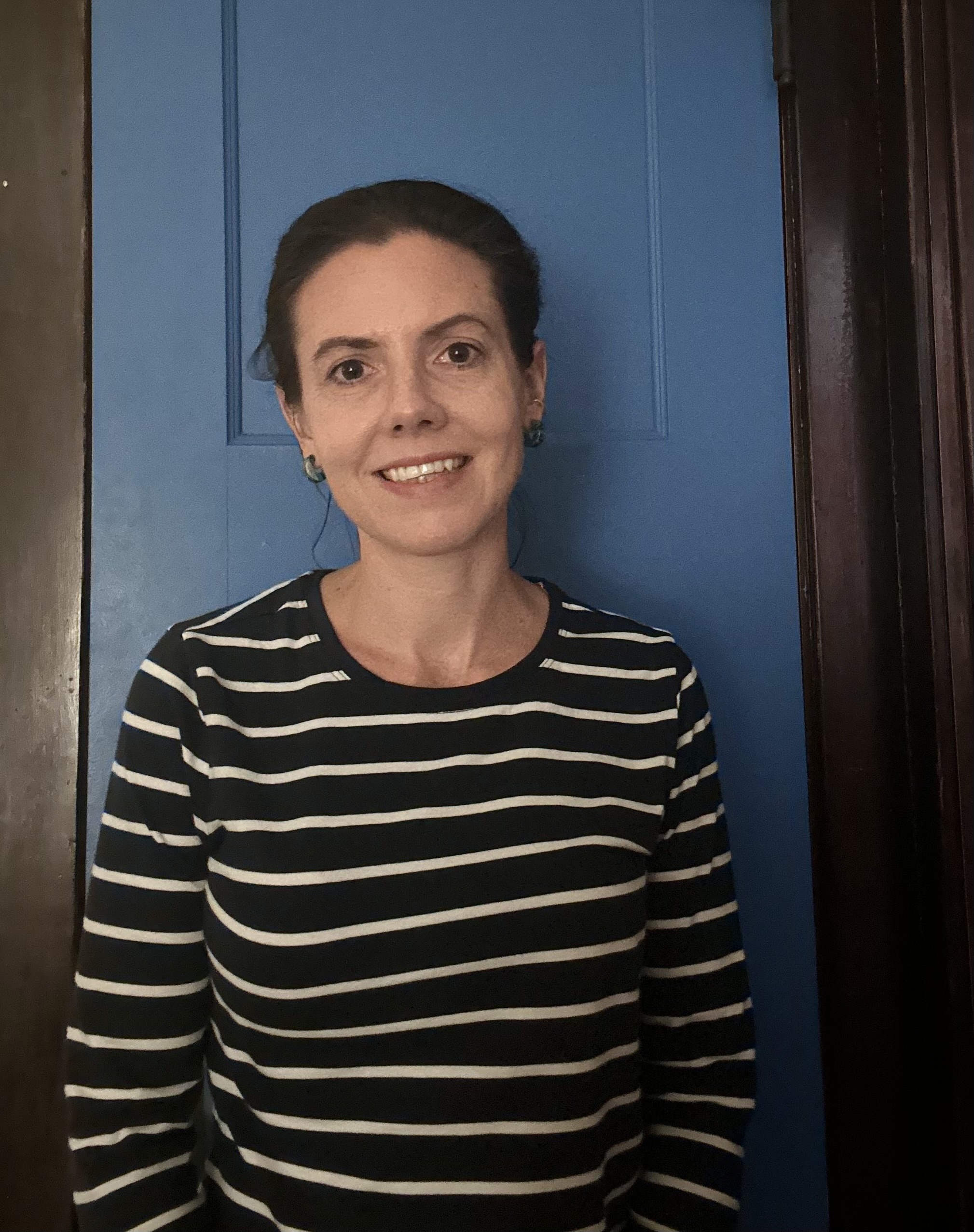
Schedule office hours here.
Brianne Painia (she/her) is an Assistant Instructional Professor of Sociology in MAPSS. She holds a PhD in Sociology from Louisiana State University, a MA in Sociology from The George Washington University, and a B.S. in Business Administration from The University of Southern Mississippi.
Professor Painia's research interests include black gender performance, black social theory, and the intersection of religion and feminism in religious communities with her most recent works focusing on religious women’s attitudes regarding feminism and religious gender roles. Her ongoing book project examines the religious gendered expectations and gender role performance of Black women in a Southern Baptist church in Southeastern Louisiana.
Related to her interest in black masculinity, Professor Painia has also conducted research on the attitudes of black men involved in a volunteer community initiative. In this project she examines how respondents’ perception of shared experience with the men they are helping impacts their willingness to participate in volunteerism. She has published work in critical criminology on the demographic impact of carceral migration as formerly incarcerated men reintegrate into their home communities.
As such she welcomes students interested in the critical intersectional study of race, gender, religion, and sexuality and/or qualitative methodologies.
As an AIP in MAPSS, Professor Painia teaches “American Religion, Gender and Race”, “Qualitative Methods: Coding and Thematic Analysis,” and “Black Social Thought” at the graduate level. She has taught introductory, undergraduate, and upper-level courses in African & African American Studies, presented her research at academic conferences, and guest lectured on the topics of race, critical theory, and qualitative methodology. She is also an affiliate faculty member of The Center for the Study of Gender and Sexuality.
Prior to joining MAPSS in 2021, Professor Painia served as an ACLS Emerging Voices Postdoctoral Fellow at Yale University, a director of a living-learning undergraduate community, and managed a non-profit initiative aimed at improving the mental, educational, and physical health outcomes of black boys and men in Baton Rouge, LA. She is from New Orleans, Louisiana.

Schedule office hours here.
John McCallum is an Assistant Instructional Professor of History in MAPSS. He holds a PhD in History from the University of Chicago, and an undergraduate degree from Northwestern University. His primary training is in the political, legal, diplomatic, and intellectual history of the United States in the 19th and 20th centuries.
Professor McCallum's research interests cluster around questions of moral and ethical judgment in American history. His current book project “Democratic Violence and the Transformation of Moral Sentiments in the ‘Good War,’” examines the popular embrace of a vernacular “realism” in the World War II years that could encompass stunning new forms of international violence alongside a growing commitment to democracy, human rights, racial liberalism, and the end of empire. The book rejects a durable tradition—in both critical and popular writing—that treats the politics of war as basically undemocratic, and the American public as essentially cloistered from the realities of total war by distance, censorship, and elite manipulation. To the contrary, World War II Americans encountered the horrors of modern conflict in strikingly intimate detail. The pro-war consensus of the 1940s was anything but superficial, and a fuller picture of this period is necessary to make sense of the Cold War democracy of the ensuing decades.
At the University of Chicago, Professor McCallum's teaching has included the following courses:
- War, Law, Norms: Violence and its Limits
- Writing History: Methods of Narrative Analysis and Persuasion
- Historical Methods
- History and Social Scientific Explanation
- Crises in American Democracy
- Watergate and American Democracy
- Human Rights II: History and Human Rights
- Turning Right? Conservative Politics in a Long Twentieth Century
- America in World Civilization, colonial period and twentieth century
Recent Research / Recent Publications
“U.S. Censorship, Violence, and Moral Judgement in a Wartime Democracy, 1941–1945,” Diplomatic History, Volume 41, Issue 3, June 2017, Pages 543–566, https://doi.org/10.1093/dh/dhw058
“War and the Historical Sociology of Human Rights: Violent Entanglements,” Humanity: An International Journal of Human Rights, Humanitarianism, and Development 8, no. 3 (2017): 559-578. doi:10.1353/hum.2017.0041.
“World War II—A Historiographical Survey,” in The Routledge History of the Twentieth Century United States (2018).
“The Book of the Dead,” The New Rambler Review (2020). https://newramblerreview.com/book-reviews/history/the-book-of-the-dead

Schedule office hours here.
Marshall Jean (he/him) is an Assistant Instructional Professor of Sociology in MAPSS. A native of Louisiana, Professor Jean has taught in a public high school in France, and has taught undergraduate and graduate courses in sociology, data science, and education policy. He is an alumnus of the MAPSS program (2007), the UChicago Sociology PhD program (2016), and was a postdoctoral Fellow at the Institute for Policy Research at Northwestern University. He was a UChicago Center for Teaching and Learning Pedagogy Fellow in 2023.
Professor Jean specializes in research related to education, especially as it relates to social inequality. He also has interests in the sociological analysis of organizations, crime and violence, health care, and religion. He currently teaches Sociology of Education, Economic Sociology, and Intermediate Regression and Data Science. His research has included studies on the effects of ability grouping and tracking in schools on student learning behaviors, the effects of student mobility on academic outcomes, and racial discrimination in housing appraisals. He is a quantitative specialist, but also has experience conducting qualitative research. He supports MAPSS students studying sociology, as well as those in Quantitative Methods and Social Analysis (QMSA) and the Education and Society (EDSO) graduate certificate program.
You can find a research brief based on Professor Jean's recent work on discrimination in housing appraisals here.

Schedule office hours here.
Hannah R. Hamilton (she/her) is an Assistant Instructional Professor of Psychology in MAPSS. She received her AB from Dartmouth College and her MA and PhD from Loyola University Chicago. Before joining MAPSS she was a Visiting Assistant Professor at Kenyon College and a Postdoctoral Researcher at UConn School of Medicine.
Professor Hamilton’s research explores relations among the need to belong, interpersonal interactions, health behaviors (such as alcohol consumption), and relationship functioning. For example, she has examined how college students’ experiences with discrimination, negative interpersonal interactions, and interpersonal stress are related to their alcohol consumption that evening. She has also studied how daily experiences are related to relationship functioning within the framework of the risk regulation model. In her work, she uses a variety of research designs (e.g., experimental, daily diary) and a broad array of statistical analyses (e.g., linear and non-linear regression, multilevel modeling, Actor-Partner Interdependence Model).
In addition to Perspectives in Social Science Analysis, Professor Hamilton teaches courses on longitudinal research methods and relationships. Her longitudinal research class covers both how to design longitudinal research studies and how to statistically analyze longitudinal data in R. Her course on the need to belong focuses on how relationships and interactions with others are related to physical and mental health. Professor Hamilton also works with incoming MAPSS-Psychology concentrators to coordinate their lab placements.

Schedule office hours here.
Mary Elena (Ella) Wilhoit (she/her) is an Associate Instructional Professor of Anthropology in MAPSS. She holds a PhD and MA in Anthropology and Latin American and Caribbean Studies from Northwestern University and a BA in Anthropology and Spanish from Vanderbilt University.
Uniting environmental anthropology, political and economic anthropology, and studies of gender, sexuality, and kinship, Professor Wilhoit's research examines gendered navigations of rural labor and status. Her first book manuscript examines gendered and racialized displacement and ecological violence in the Andes. Drawing on over a decade of ethnographic research in the Ayacucho region of Peru, her work explores how rural women’s acquisition of economic mobility accompanies shifting beliefs about sexuality and marriage and facilitates the restructuring of income strategies, household configuration, and kinship networks. Her work re-examines what might be thought of as the 'invisible,' gendered labors--productive, reproductive, and environmental--encouraged by (I)NGO projects and transnational trade policy among other influences.
Her second project brings interests in displacement, political division, ecological devastation and gendered struggles for economic stability to the Southeast US. Her research in development examines the experiences and motivations of small-scale farmers in the southeast, focusing particularly on 21st century experiences of tenancy, the diversity of rural political consciousness, and more-than-human webs of interdependence in agricultural communities.
Professor Wilhoit's work has been published in the Anthropology of Work Review, the Journal of Latin American and Caribbean Studies, the International Journal of Women’s Studies, and ReVista: the Harvard Review of Latin America among other venues.
Courses she teaches include:
- Ethnographic Research Methods
- Gender, Sex, and Culture
- More than Human Ethnography
- Sarah Baartman through $chitt’s Creek: an Introduction to Gender and Popular Culture
- Sex in the Ethnographic Tradition

To schedule an office hours appointment, contact Emma Rubenstein at emrubenstein@uchicago.edu.
Min Sok Lee (he/him) is an Assistant Senior Instructional Professor in Economics at the University of Chicago, teaching undergraduate courses in principles of microeconomics and intermediate microeconomics. Professor Lee holds a BA in economics from the University of Cambridge (UK), and a PhD in economics from the University of Chicago.

To schedule an office hours appointment, contact Emma Rubenstein at emrubenstein@uchicago.edu.
Victor Lima (he/him) is a Senior Instructional Professor in Economics and the College, as well as Co-Director of Undergraduate Studies in Economics. His research interests include monetary economics, social effects, and unemployment effects of labor regulation. For more information, please visit his homepage.

Schedule office hours here.
Tori Gross is Assistant Senior Instructional Professor of Anthropology and Assistant Director of MAPSS. She holds a PhD in Anthropology from Columbia University, an MA in Religious Studies, and a BA in Sociology and Religion both from McGill University.
Professor Gross’s research focuses on the affective dimensions of identity politics, the generative intersection of national imaginaries and global neoliberal values, and the gendered production of parastate sovereignty in the context of India’s young, rapidly changing democracy. Her book manuscript, provisionally entitled Hail to the Hero: Caste, Masculinity, and Political Subjectivity in Contemporary South India, examines countervailing processes of caste and class identity making against the backdrop of regional ethnolinguistic nationalism and structures of recognition institutionalized in state programs of affirmative action. Drawing on two years of ethnographic and archival research in Tamil Nadu, the book examines novel caste identities and changing economic and social relations between castes that have arisen following the breakdown of generational, ritual regimes of caste hierarchy. The book ultimately elucidates the ways politically marginalized and newly urbanized communities accrue power through collective historical claims that function as strategic negotiations of status and rights with both other communities and the paternalistic nation-state.
While Professor Gross’s research is located in South India, the yearning expressions and fleeting achievements of sovereignty and righteous honor that she illuminates are common to identity based and minority movements in many parts of the world. Tensions between community and state and between the past as nostalgically remembered and the present as lived with resignation emerge through her research and are of interest to a broad range of scholars focused on politics and society. Tori’s 2022 article, “Constructing a caste in the past: Revisionist histories and competitive authority in South India” appears in Modern Asian Studies.
Her most recent research project is an examination of growing support for the world’s largest political party, the Bharatiya Janata Party (BJP), in Tamil Nadu where it has historically been weak. Powerful ideals of egalitarianism, redistributive social justice, and rationalism grounded in regional ethnolinguistic identity have dominated twentieth century Tamil Nadu’s political scene, making it an unlikely support base for the BJP, which espouses an exclusionary and hierarchical Hindu nationalist ideology. However, Tamilians’ national imaginaries have become increasingly expansive and thus accommodative of the centralizing force of Hindu nationalism as more people (either aspire to or) live and work abroad, coming to situate themselves as part of the Indian nation competing on the global scale. Professor Gross’s work examines the ways neoliberal values, particularly the intractable commitment to open competition, suffuse the content of nationalism in Tamil Nadu, allowing Tamilians to assert a peacefully integrated national polity despite substantial evidence to the contrary. The post-truth media landscape, corrupt dynastic state politics, and the gravitational pull of novelty make the BJP ever more appealing in India’s last Hindu holdout.

Email Professor Rogowski to schedule an appointment: jrogowski@uchicago.edu.
Jon Rogowski (he/him) is Faculty Director of MAPSS and Professor in the Department of Political Science at the University of Chicago. His research interests are in American politics, where he studies representation and accountability, political institutions, and American political history. He is the author of two books on the American presidency, No Blank Check: Origins and Consequences of Public Antipathy toward Presidential Power (2022) with Andrew Reeves, and The Wartime President: Executive Influence and the Nationalizing Politics of Threat (2013) with William Howell and Saul Jackman. Professor Rogowski is a 2007 graduate of MAPSS. For more information, please visit his homepage.